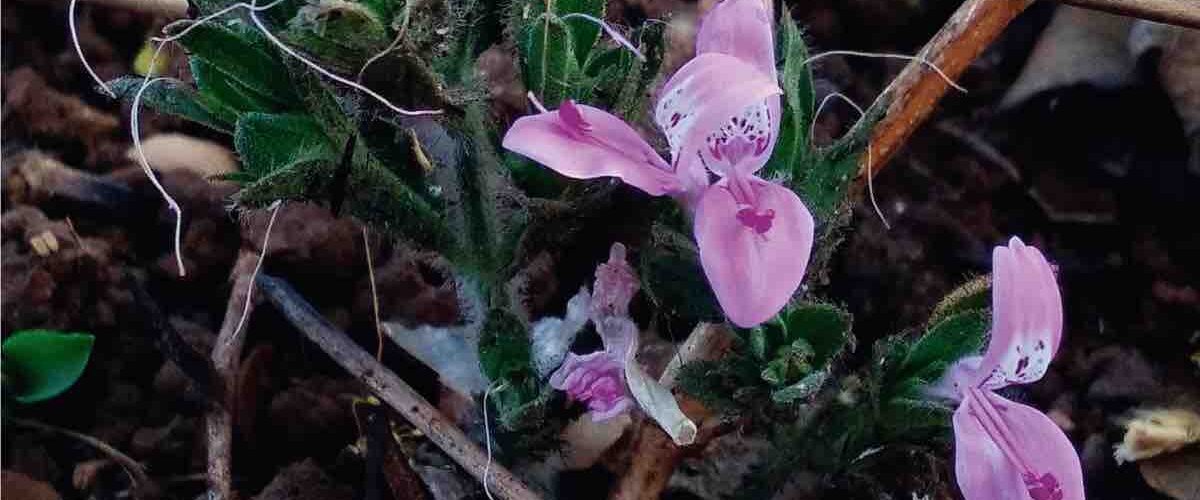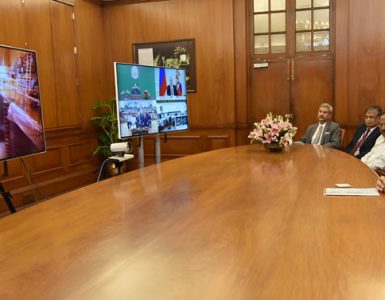Nestled in the lap of the Himalayas and blessed with lush biodiversity, India’s North East Region is a land of hidden treasures. Its vibrant landscapes, rich culture, and vast pool of resources offer immense potential for innovation.
Leveraging the power of biotechnology, the North East Region (NER) is not just preserving its natural heritage but also scripting a new chapter of growth and sustainability.
A Green Revolution with Biotech at its Core
Imagine a region where farmers cultivate medicinal plants that fuel health industries and local incomes, where young researchers develop resilient crop varieties that withstand changing climates, and where bio-entrepreneurs thrive by transforming indigenous knowledge into global products.
This vision is steadily turning into reality, thanks to the Department of Biotechnology’s North Eastern Programme.
The Department of Biotechnology (DBT) is an Indian government department, under the Ministry of Science and Technology responsible for administrating development and commercialisation in the field of modern biology and biotechnology in India.
The main objectives of the Department of Biotechnology’s North Eastern Programme are:
- To facilitate biotech-based development in the North Eastern Region of India through conceptualization, implementation, mentoring, and monitoring of biotechnology-intervention R&D programs for holistic development in the region.
- To initiate bio-resource-based entrepreneurship programmes in NER to uplift the rural income of farmers and small entrepreneurs of the region.
- To implement programmes to ensure that human resource development matches the evolving needs of the North East Region.
- To establish Research Resources, Service Facilities and Platforms to provide support to a broad range of multidisciplinary, shared research resources critical for advancing various areas of life sciences and biotechnology in the Northeast region.
Since 2010, DBT has consistently allocated 10% of its annual budget to specialized programmes in the North East Region, aiming to bridge the gap between potential and prosperity.
In the first phase between 2010-14, DBT focussed on basic infrastructure creation and human resource development, the second phase (2015-20) focussed on a few research areas while the third phase (2021-25) trained scientists in the northeast region to work on local challenges.
These initiatives focus on harnessing endemic bioresources, promoting biotech education, and creating employment opportunities through bio-based entrepreneurship.
Major Programmes under NER
Biotechnology thrives on knowledge and innovation. Recognizing this, the DBT has launched multiple educational and training programmes focused on NER:
Twinning R&D Programme for NER
The programme was initiated in 2010-2011 to develop core competence and capacity in various areas of biotechnology through the collaboration of institutes from North East India with other leading institutes across the country.
The programme has catalyzed vibrant collaborations between 65+ institutions from the Northeast and the rest of India in various spheres of biotechnology. Close to 650 R&D projects have been supported, benefitting around 450 researchers and 2000 young researchers and students.
Establishment of Biotech Hubs across NER
Since 2011, a network of 126 Biotech Hubs has been established across NER, providing necessary infrastructure in universities, colleges, and institutions and the required training in sophisticated technologies to support and promote biological sciences/biotechnology education and research. In Phase II, 54 Biotech have been supported for focused Research & training on local issues.
Biotechnology Labs in Senior Secondary Schools (BLiSS) of NER
To create awareness among school students about biological sciences at the school level and also to provide an environment of access to a well-equipped laboratory, DBT initiated a programme for establishing “Biotechnology Labs in Senior Secondary Schools (BLiSS)” in NER in 2014.
Visiting Research Professorship (VRP) programme
The Programme was initiated in 2015, to utilize the expertise of outstanding scientists for bringing advancements in the Biotechnology and Life Science related activities in various institutions of research and higher learning in the NE States of India.
Specialized training programmes for NE researchers by National Institutions
Chemical Ecology Programme between NER and Bangalore Institutes (NCBS, UAS and IISc.) initiated in 2015, trained and equipped young scientists from the NER to produce quality research outcomes by providing tailormade interdisciplinary training to PhD students and postdoctoral fellows recruited under collaborative projects in the field of chemical ecology.
Enhancing Capacity in Genomics-Driven Research in Human Health & Disease in the North-East Region by DBT-NIBMG, Kaylani.
The programme, initiated in 2016 provided comprehensive training to scientists, research students and clinicians belonging to the NER, engaged in “Biomedical Research”.
The short-term training programme included workshops on various aspects of molecular and genetics-based analyses, and handling clinical materials such as blood and tissue samples and/or cell lines.
HRD Programme in NER
The following Human Resource Development focused programmes are being implemented in the North Eastern Region:
- DBT-Research Associateship Program – The Department supports up to 25 post-doctoral fellowships per year exclusively for NER
- DBT-PG Program – The DST-PG Program is being implemented in three institutes/universities located in NER
- Biotech Industrial Training Program (BITP) – BITP aims to bridge the gap between formal education and industry needs in the Biotechnology sector by providing 6 months of industrial skill training to M.Sc/MTech students.
- Skill Vigyan Programme in Biotechnology – The objective is to provide hands-on training in tools and techniques in Biotechnology and allied areas to generate skilled manpower through a hub and spoke model.
- Star College Programme – Provides support to colleges and universities offering undergraduate education to improve science teaching across the country
- DBT e-Library Consortium (DeLCON) Provides access to over 1000 Journal Electronically to 18 North Eastern Region (NER) Institutions through the DeLCON Portal
Programmes to support locals
To emphasise services to farmers, and academics, the “DBT-North East Centre for Agricultural Biotechnology (DBT-NECAB): Phase III” project has been supported.
Similarly, to strengthen Citrus research in NER, facilities were established at the Institute of Horticulture Technology (IHT), Mandira, Assam, for the generation of certified scion material from Khasi mandarin (Citrus reticulata) and sweet orange. Rootstocks free from Citrus Greening Bacteria (CGB) and Citrus tristeza virus have been developed.
In view of promoting sustainable bioresources, a total area of 64.1 acres was covered for captive cultivation of selected medicinal crops like Curcuma caesia and compound-rich lemongrass (elemicinrich and methyl-eugenol-rich).
About 649 farmers and entrepreneurs from NER benefited from the training and awareness program.
Additionally, an essential oil distillation unit has been installed at Mudoi village, Arunachal Pradesh, to support farmers in revenue generation.
Furthermore, the Docynia indica, commonly known as Assam apple or wild apple, has been successfully explored towards making value-added products such as pickles, jam, candy, juice, etc., and the knowledge is being popularized among the tribal communities of Assam and Meghalaya through awareness campaigns and meetings
Major Achievements
The major outcomes of the North Eastern programmes are:
- No. of Projects supported: 1200
- No. of Institutes supported: 130
- No. of Publications: 2700
- No. of Patents filed/granted: 29
- No. of Manpower trained: 1500
Bacterial Blight resistant introgressed rice variety “Patkai”: A rice variety has been developed by AAU- Assam using introgressing blight resistance from improved samba mahsuri (ISM) into Ranjeet Sub1 background. This variety was notified by the Central Variety Release Committee (CVRC)
Lateral flow assay for the rapid detection of brucellosis: A chimeric protein conjugate-based Lateral Flow Assay (LFA) for the detection of anti-brucella antibodies in multiple livestock was standardized. The analytical sensitivity considering iELISA test as the gold standard with sera sample revealed significant positivity in lateral flow tests.
Mobile app – Pig Disease Diagnosis Expert System (PDDES), a Computer-based application to assist in the diagnosis of pig diseases or medical conditions was developed. Using PDDES, veterinarians, farmers, and other swine industry professionals can quickly identify and treat diseases to minimize their impact on pig production and profitability. The application is available in the Google Play Store.
Conclusion
By harnessing the region’s rich biodiversity and empowering local communities through education, research, and entrepreneurship, the Department of Biotechnology’s North Eastern Programme is preserving cultural and ecological heritage and driving sustainable economic growth.
As North East India continues to evolve into a hub of bio-innovation, it sets a remarkable example of how science and tradition can coexist to shape a prosperous and sustainable future.






Add comment